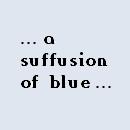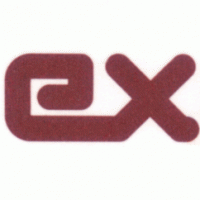Great ! I'll have to look at the newer 0.4.6 then. Where is the current download hosted, please ?
http://reboot.pro/to...b4dos/?p=186085
In theory the idea is that the BIOS reads first sector of a device (no matter which size is the sector, 512 bytes or greater) then checks if at offset 510 there are the "Magic Number" 55AA bytes, and if they are there, execute the code starting at offset 0.
Of course each and every BIOS vendor may have followed the above or have introduced any kind of stupid check/limitation/whatever that makes USB booting this way impossible.
Then there is the issue about the nature of the media (partitioned or non-partitioned).
Again in theory the idea is that (in the case of non-partitioned media) there is a field in the BPB (BIOS Parameter Block) stating the size of the sector (and again a given OS may use or totally ignore that field or simply be incapable of using anything but the "default till recently" 512 bytes size for the sector.
In the case of partitioned media, the data in the MBR (which provides no hints about sector size as both CHS and LBA are expressed in "sectors") may be read by the BIOS (or by the OS or by both or by one but not the other) as "sectors sized 512 bytes" or "sectors sized the size that the device is reporting".
Most (but not all) hard disks with 4K sectors are not "pure" 4K sectors as they simulate anyway a 512 bytes geometry, i.e. while being "Advanced Format" (which should be really called "Retarded Sectored"  ) are actually so-called 512e:
) are actually so-called 512e:
http://en.wikipedia....Advanced_Format
It is extremely rare (though possible) that a 1 Tb hard disk (which has no real reason to use 4096 Kb sectors as the limit of 512 bytes sectored media addressable space on MBR disks is around 2.2 Tb) is "pure" 4K, generally only models bigger then 2 Tb (and intended/produced for the stupid EFI/UEFI platform, i.e. intended to be GPT disks) are not 512e.
On the other hand it is entirely possible that the actual disk drive is 512e BUT the "bridge" inside the case "emulates" 4K sectors only.
So, if the limit is in the BIOS (that is simply hardcoded to read from the device a single sector, sector 0, sized 512 bytes and gets instead a 4096 one and panics  ) you are perfectly right
) you are perfectly right  and a "third party" USB stack, 4K compatible is needed (and of course it needs to reside on an internal hard disk or on a "helper" media), but sometimes this is also not enough as the OS itself cannot deal properly with these 4K sectors (at least in the early phases of booting), see -as an example - the mess that the good MS guys put together:
and a "third party" USB stack, 4K compatible is needed (and of course it needs to reside on an internal hard disk or on a "helper" media), but sometimes this is also not enough as the OS itself cannot deal properly with these 4K sectors (at least in the early phases of booting), see -as an example - the mess that the good MS guys put together:
http://msdn.microsof...5(v=vs.85).aspx
But if the issue is only in the boot code (of the MBR) it may be possible to workaround the issue (still provided that the OS actually can use for booting a 4K sectored device, conversely, if the latter is not true, it will be really tough (though maybe still possible) to actually boot.
As you can see there are a lot of variables involved, surely there is not a "one-size-fits-all" solution, maybe there are specific workarounds, that will need EXACT data/specific hardware and OS involved info and a lot of testing.

Wonko













